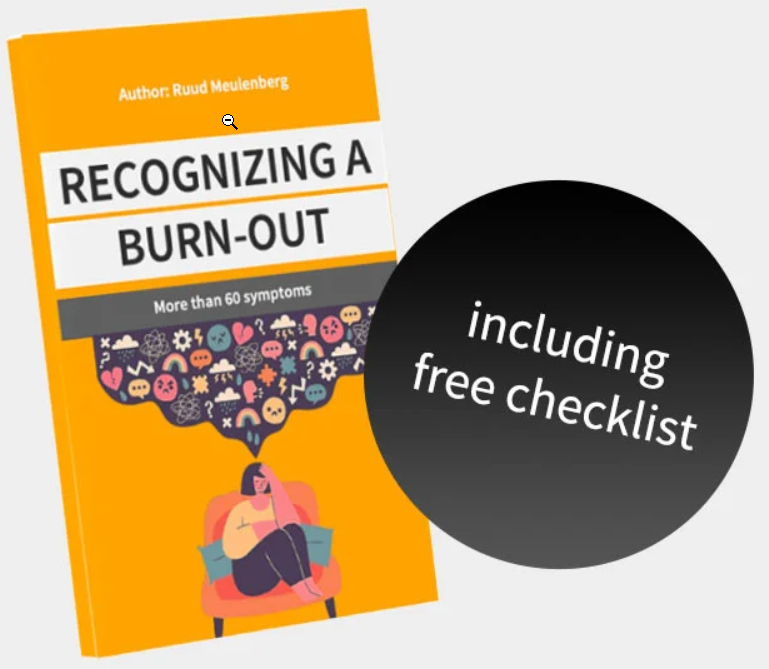The human body operates as a sophisticated machine, and among its vital components is the hormonal system, also known as the endocrine system. This intricate network of glands, hormones, and receptors controls a wide range of bodily functions, from growth and development to metabolism and reproduction.
However, the hormonal system’s role doesn’t end there. It also plays a vital role in how our bodies respond to stress. Stress is unavoidable, and how our bodies react to it can significantly impact our physical and mental well-being. Understanding the relationship between the hormonal system and stress is essential in this context and will be explored in this article.
What is the Role of the Hormonal System?
The primary function of the hormonal system is to regulate the body’s internal environment, ensuring equilibrium by releasing hormones that travel through the bloodstream to target cells. Moreover, it is responsible for our body’s response to anxiety, which triggers the release of the hormone cortisol. Cortisol helps the body cope with pressure by increasing blood sugar levels, suppressing the immune system, and affecting the metabolism of fats, proteins, and carbohydrates.
Choose the help that suits you.
Our dedicated team of experts is here to guide and support you in the most difficult times of your life.
The Importance of the Hormonal System
The hormonal system is extremely important in the human body, acting as a touchpoint to all major functions as follows:
Metabolism
The hormonal system plays a vital role in controlling metabolism. It produces hormones that affect digestion, circulation, and other bodily processes. These include the thyroid hormone, essential for growth and development, and insulin, which regulates glucose absorption from the bloodstream into cells.
Body Composition
It does this by controlling levels of certain hormones, like insulin, which aids in controlling carbohydrate metabolism. By regulating these hormones’ production and release into the bloodstream, we can maintain our weight, bone density, and manage other aspects of body composition.
Reproductive Function
The hormonal system controls and regulates the production of sex hormones, like oestrogen and testosterone, and their distribution throughout the body. This process can support hormone-dependent processes, including puberty and reproduction.
Mood and Emotions
Hormones like serotonin and dopamine help regulate our moods and emotions. These hormones help us feel happy, calm, and relaxed. In contrast, imbalances in these hormones can lead to various emotional problems, including anxiety, burnout, and depression.

Immunity
The hormonal system produces and releases antibodies, which help our immune system fight infections. It uses these hormones to activate processing in white blood cells involved with infection or injury.
Sleep
The pineal gland, a component of the hormonal system, produces the hormone melatonin. This hormone plays a crucial role in regulating our circadian rhythm, governing our internal biological clock responsible for sleep and wake cycles. Imbalances in melatonin levels may contribute to sleep disorders like insomnia, jet lag, and seasonal affective disorder.
Blood Pressure
The hormonal system regulates our blood pressure by controlling the production of hormones such as aldosterone and renin. These hormones control the amount of salt and water in the body, affecting blood pressure. Imbalances in these hormones can lead to hypertension or low blood pressure.
The Connection between Stress and the Hormonal System
When the body experiences stress, the hypothalamus signals the pituitary gland to release ACTH. ACTH then stimulates the adrenal glands to release cortisol, a hormone that helps the body deal with anxiety.
Chronic anxiety can cause an overproduction of cortisol, leading to various health problems, such as weight gain, high blood pressure, and a weakened immune system. It can also affect the thyroid gland, which produces hormones that regulate metabolism.
The hormonal system and stress are tightly interconnected, and chronic stress can lead to imbalances in hormone levels, affecting overall health and well-being.
How Does the Hormonal System Respond to Stress
In stressful situations, the brain releases a hormone called corticotropin-releasing hormone (CRH). This hormone signals the pituitary gland to release another hormone called adrenocorticotropic hormone (ACTH) [1]. ACTH then prompts the adrenal glands to make and release cortisol. Cortisol helps control blood sugar levels and calms the immune system to deal with stress.
As a response, the adrenal glands release extra cortisol. This helps bring the body back to balance and keep its internal environment stable. But, prolonged stress can cause hormonal imbalances, affecting the endocrine system’s ability to regulate the body’s internal conditions. Such imbalances might happen when someone faces continuous stress for an extended time. Also, when stress triggers cortisol release, it affects the immune system, making it less effective in handling stress.
Behaviours to Change with a Stressed Endocrine System
When the body’s internal system is under pressure, it’s important to change behaviours which might be contributing to the pressure. Here are some examples of behaviours that should be minimised or even avoided if at all possible:
- Lack of Sleep: Lack of enough sleep makes your body more vulnerable to strain. Aim for 7 to 8 hours per night.
- Stressful Lifestyle: Try to cut out unnecessary activities. Find time for yourself and indulge in some beneficial leisurely activities.
- Drinking too Much Caffeine: Caffeine can increase hormone levels, making it difficult to relax. Please limit yourself to one cup, and drink it early in the day and not near bedtime.
- Smoking: Smoking causes immediate changes in hormone levels and a higher risk of health problems like heart disease. Although difficult, try quitting or replacing it with some relaxing hobbies.
Tips to Manage a Stressed Hormonal System
Here are some tips on how to cope with a stressed endocrine system.
- Maintain a Healthy Diet: A healthy diet helps to regulate blood sugar levels, which improves your mood and allows your body to manage anxiety more effectively. You should also eat protein-rich foods essential for hormone production and maintenance.
- Exercise Regularly: Exercising helps burn off any excess cortisol in your body. It not only prevents it from building up but also helps to manage blood sugar levels. Try focusing on enjoyable exercises like swimming, hiking, or dancing.
- Adoption of Stress Management Techniques: A lot of stress is preventable with methods like breathing techniques and visualisations. An excellent way to implement these techniques is to use guided imagery. Try downloading an audiobook with guided imagery and listen to it when stressed.
- Practising Meditation or Yoga: Meditation techniques like yoga are a great way to relax the mind and ease tension gently without feeling exhausted.

Download our
free e-book
Recognizing a burnout
(more than 60 symptoms)
- Talk to Friends and Family: Connecting with friends and family is a great way to relax. It will help relieve any pressure or grief and allow you to share your concerns with a dependable person.
- Try Acupuncture: Acupuncture can help you to ease your anxiety and depression by reducing inflammation. It calms the mind and relieves pain inside of the body as well.
- Get Enough Sleep: Aim for a minimum of eight hours of restful sleep each night. Inadequate sleep prompts the adrenal glands to release more cortisol, leading to fatigue, burnout, and difficulties in managing stress.
- Keep Yourself Active: Being mentally and physically active helps keep our body balanced and relieves strain. Find ways to leave the house or invite friends to participate in a mutual hobby.
- Avoid Sugar and Gluten: There is a positive correlation between the consumption of sugar and gluten and increased strain hormone levels. That is why it’s beneficial to try cutting these foods out of your diet.
- Get Professional Help: Seek help from a professional who can guide you in managing your anxiety.
Where Can I Get Help to Manage Stress?
Fortunately, there are many resources available today including:
Stress Coaches
A stress coach provides an objective perspective on your life. They are well-equipped with the tools, knowledge, and training to manage your anxiety effectively. Some of their main techniques include CBT, psychotherapy and counselling.
Relaxation Audios
Listen to these calming audio guides on platforms like YouTube and Spotify. They provide easy instructions for relaxation techniques with soothing background music, helping you manage stress more effectively.
Health Educators
These professionals are very knowledgeable about the body and can provide the proper guidance and support to manage anxiety positively. If a health educator is unavailable in your area, ask for help from your primary care provider or visit your local school since most have a stress management teacher.
Self-help Books
Some people prefer to read a book independently rather than talk to someone. There are a lot of great books out there that provide information on how you can manage your pressures and anxiety.
Stress & burnout coaching; for 100% recovery!
Reducing stress and recovering from burnout is simply incredibly difficult. The coaches at Meulenberg Training & Coaching understand exactly what you are going through and know how tough it can be. They have often experienced it themselves! With their years of experience and expertise, they are ready to help you step by step toward a full recovery. The results of our one-on-one coaching and absenteeism training will benefit you for a lifetime!
Frequently Asked Questions
References
- Clevelandclinic.org – Adrenocorticotropic Hormone (ACTH) – gevonden op 29/07/2024
Link to a page on clevelandclinic.org






